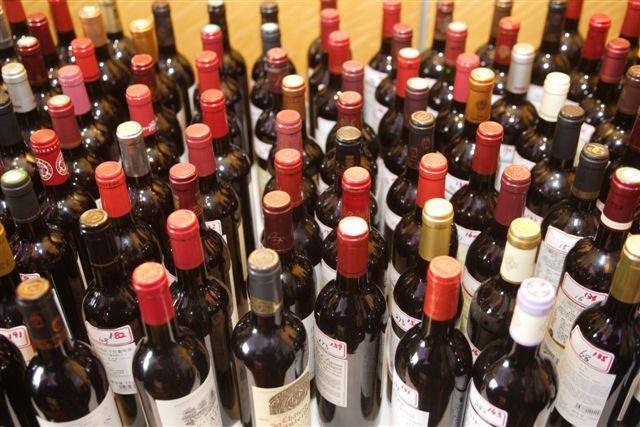It’s no secret times are tough for Bordeaux in China. Long the top wine status symbol here, and a guidepost for local producers, the region has been losing share — and maybe some faith in China.
That doesn’t mean leading lights like Lafite or Latour, or mass market-oriented producers, which have established niches in this market. It means the lesser-known mid-sized often family-owned wineries that are the bulk of Bordeaux producers, says Helene Ponty.
Ponty moved to China in 2012 to sell her family’s wines, from Canon-Fronsac in Bordeaux, propelled by a sense of adventure and a need to be on the ground to properly develop her brand. Ponty now sells her wine in over 40 cities and one trend she has seen during the past few years is that few counterparts want to follow.
“Many people in France do not want to deal with China any more. They are kind of jaded about the Chinese wine market,” she says.
The typical winery she refers to makes about 300,000 bottles, entered China’s market five to ten years ago, and has already burned through multiple importers.
“Five, six years ago, when people were learning about what I was doing in China, everyone was calling me, emailing me, to get me to sell their wine here. Now if I try to find some wines to import to China, if I tell people l have this company in China, I’m selling in China, they look at me and go ‘Hmm, no thank you. I don’t want to sell in China. I’ve tried and I’ve stopped’.”
The numbers don’t make it any more enticing these days. Bordeaux’s exports fell 14% globally last year and by a whopping 31% by volume and 22% by value in continental China.
Several Bordeaux producers, with a trio of good wines, scores and stories, have told me lately that the market is tougher. No doubt economic uncertainty has played a role as has the advantage rivals like Australia and Chile have with their free deals.
Consumers are also increasingly confident and curious, moving past default status buys like Bordeaux and tasting from different regions, wines and styles. One popular wine shop chain says it reduced its Bordeaux listings 30 percent over the past two years due to changing consumer preferences.
Add to this the cultural challenges, and many Bordeaux producers say it’s not worth the effort, says Ponty.
“They feel it’s a market that is difficult to understand. A lot of people have had relationship with distributors that were all short-lived,” she says.
“They’ve invested money, they’ve invested time. They’ve done dinners and events and they don’t really understand the culture. And the volume hasn’t really been worth it. Instead, they can go to the UK or to the US. It’s easier, they can get a good relationship with their importer and the volume is pretty much the same.”
Ponty expects a trickle-down effect to wine fairs in China, with fewer Bordeaux producers attending,thus limiting options for distributors who are unwilling to source directly in France.
These excerpts come from a longer interview I did with Ponty, and will post soon, a follow-up to last year’s Full Ponty: A Family Winery Tells All About Selling in China.
Grape Wall has no sponsors of advertisers: if you find the content and projects like World Marselan Day worthwhile, please help cover the costs via PayPal, WeChat or Alipay.
Sign up for the free Grape Wall newsletter here. Follow Grape Wall on LinkedIn, Instagram, Facebook and Twitter. And contact Grape Wall via grapewallofchina (at) gmail.com.
